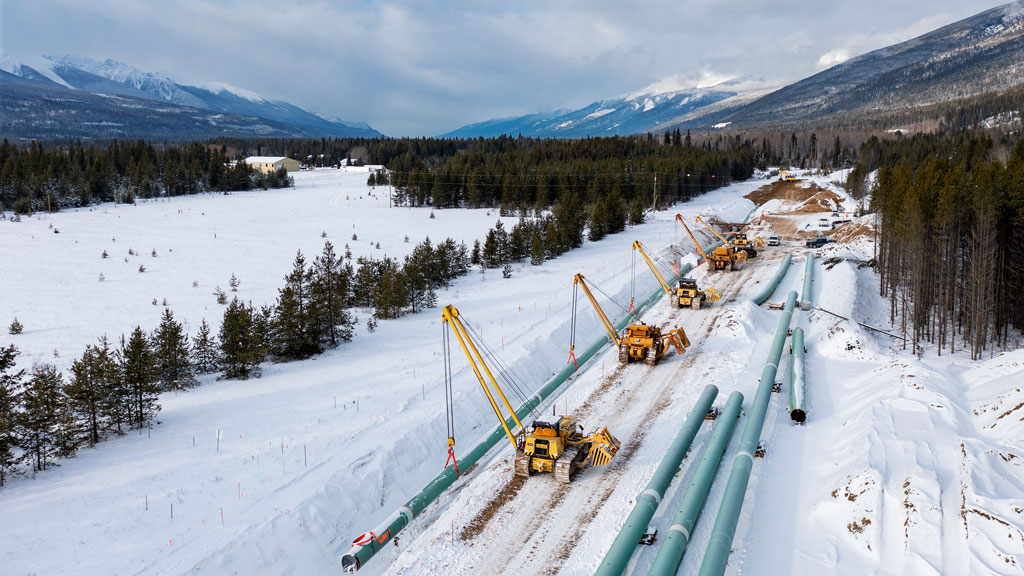BURNABY, B.C.—The Trans Mountain Expansion project’s environmental approvals are being altered after a series of court rulings.
B.C. officials announced changes to the Environmental Assessment Certificate for the project and recommendations other agencies have been made.
Officials stated the provincial reconsideration process was a result of a federal court of appeal decision in 2018, and associated decisions by the B.C. Court of Appeal in 2019. Following the 2018 federal court of appeal determination that the National Energy Board (NEB) excluded project-related marine shipping from aspects of its review, the NEB undertook a reconsideration process and released a reconsideration report. The federal government then used a 2019 reconsideration report to inform its decision to approve the project again.
In September 2019, the B.C. Court of Appeal, in two cases, decided that because the ministers who issued the provincial certificate relied on the NEB’s assessment, they should have the opportunity to consider the changes in the NEB’s reconsideration report and determine if any changes to the certificate conditions, or the addition of new ones, are necessary, within the limits of provincial jurisdiction.
Upon direction from the ministers in March 2020, the Environmental Assessment Office (EAO) undertook a review of the changes in the 2019 NEB reconsideration report on aspects of the project related to marine shipping.
The EAO considered the portions of the 2019 reconsideration report that differ from the initial 2016 report to determine if any changes to the certificate conditions previously approved by ministers in 2017, or the addition of new ones, were required within the scope of the provincial reconsideration process and the limits of provincial jurisdiction.
As part of the provincial reconsideration process, the EAO asked Sḵwx̱wú7mesh Úxwumixw (Squamish Nation), səlilwətaɬ (Tsleil-Waututh Nation) and the City of Vancouver to participate and formed a provincial advisory group to provide technical expertise and support the EAO’s understanding of key issues.
The EAO also engaged marine Indigenous nations, federal government departments, Trans Mountain and other parties, and held a 45-day public comment period prior to making recommendations to ministers.
As a result of the reconsideration process, the following changes were made to the provincial Environmental Assessment Certificate:
– Amending Condition 35 (Fate and Behaviour of Bitumen Research), requiring Trans Mountain to provide research updates every five years and add local coastal governments to the parties requiring consultation on the research
– A new condition requiring a human health risk report that includes:
– identifying exposure pathways in the event of a marine spill
– identifying roles and responsibilities of local, provincial and federal authorities in the event of a marine spill
– consulting with Indigenous nations, local governments and relevant agencies to develop the report that will provide important information as the federal government and its agencies prepare plans that address the potential impact to human health from spills
– A new condition requiring Trans Mountain to develop a shoreline baseline data report, developed in consultation with various parties, that consolidates data at hypothetical incident locations along the shipping route that will strengthen restoration and recovery in the event of a ship-source marine spill
– Adding Snuneymuxw First Nation to the list of Aboriginal Groups – Marine Shipping
– Adding a definition for Potentially Affected Coastal Local Governments
In addition, B.C. officials have provided advice to the federal government to consider and take action on concerns raised by participants during the reconsideration process that were outside of the B.C. Court of Appeal’s direction.



Recent Comments
comments for this post are closed